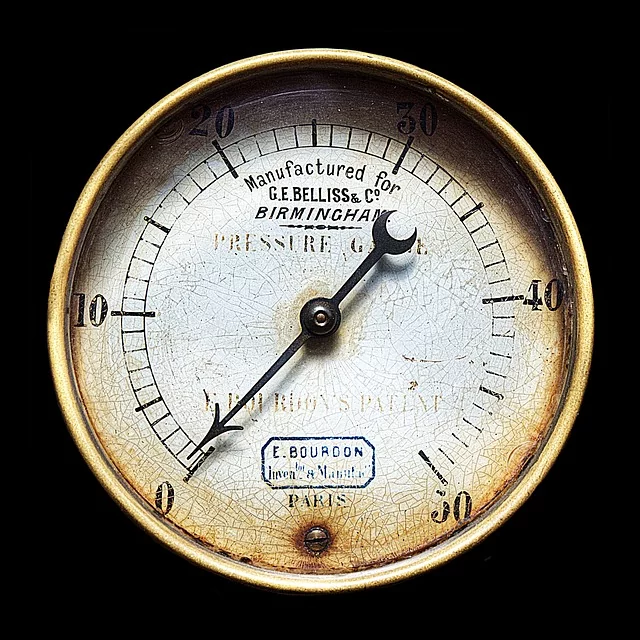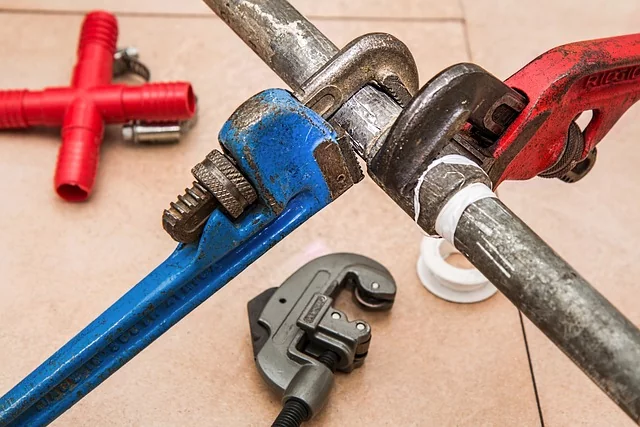Your home’s central heating system plays a crucial role in keeping you warm and comfortable, especially during the colder months. However, it can be quite disconcerting when your boiler starts losing pressure. This common issue can lead to a host of heating problems. In this blog post, we’ll delve into why your boiler might be losing pressure, what to do when it happens, and how to prevent it from occurring in the first place.
Understanding Boiler Pressure
Boiler pressure is the measure of the force of steam or hot water in your heating system. It’s typically measured in bars and is a critical aspect of your boiler’s operation. Maintaining the correct pressure is essential for ensuring the efficient and safe functioning of your central heating system. A pressure gauge on your boiler displays this value, and it’s important to keep an eye on it.
Common Reasons for Boiler Pressure Loss
Several factors can lead to your boiler losing pressure. Understanding these causes is the first step toward resolving the issue:
- Leaks: Leaky pipes, valves, or other components in your heating system can lead to a gradual loss of pressure. Water escaping from the system can result in a drop in boiler pressure.
- Bleeding Radiators: Bleeding radiators is a common maintenance task. However, if not done correctly, it can introduce air into the system, causing pressure loss.
- Faulty Pressure Relief Valves: The pressure relief valve is designed to release excess pressure from the boiler to prevent it from becoming dangerously high. A malfunctioning valve can cause the boiler to lose pressure.
Symptoms of Low Boiler Pressure
Recognising the signs of low boiler pressure is crucial. If you experience any of the following symptoms, it’s likely your boiler pressure is too low:
- Weak Heating: Your radiators may not heat up adequately, resulting in an insufficiently warm home.
- No Hot Water: Low boiler pressure can also affect your hot water supply, leaving you with cold or lukewarm water.
- Unusual Boiler Noises: A drop in pressure can lead to strange noises coming from your boiler, like gurgling or banging sounds.
Steps to Re-Pressurise Your Boiler
Re-pressurising your boiler when it loses pressure is a relatively simple process. Here’s what to do:
- Turn Off the Boiler: Ensure your boiler is switched off. This is important for safety.
- Locate the Pressure Gauge: Your boiler should have a pressure gauge that displays the current pressure. This gauge is often located near the boiler.
- Check the Pressure: The gauge should indicate the current pressure level. The ideal pressure typically falls between 1 and 1.5 bars. If it’s below this range, you’ll need to top it up.
- Re-Pressurise: If the pressure is too low, you can re-pressurise the boiler by using the filling loop, which is a flexible pipe connected to your boiler. Connect it to the water supply, and slowly add water until the pressure gauge shows the desired level.
- Reset the Boiler: Once the pressure is back to normal, reset your boiler. This usually involves turning it on and off again or following the manufacturer’s instructions.
Locating and Fixing Leaks
If your boiler is losing pressure and the problem persists, it’s essential to find and fix any leaks in your heating system. Leaks can occur in various components, including pipes, valves, and radiators. Identifying the source of the leak and addressing it promptly is crucial to preventing pressure loss.
Bleeding Radiators
Sometimes, air can become trapped in your radiators, leading to pressure loss. Bleeding your radiators is a simple process that can help the lost pressure and resolve this issue. However, it’s important to do it correctly to avoid introducing more air into the system.
When to Seek Professional Help
While many pressure loss issues can be resolved with DIY methods, there are situations where professional help is necessary. If you’re unable to identify or fix the boiler leak problem, or if you suspect a more significant issue, such as a faulty boiler component, it’s advisable to contact a qualified heating engineer or technician.
Preventative Maintenance
The best way to deal with boiler pressure loss is to prevent it from happening in the first place. Regular maintenance of your heating system, including checking for leaks, bleeding pipes and radiators, and ensuring that all components are in good working condition, can help you avoid pressure problems and ensure the longevity of your central heating system.
Boiler Pressure and Safety
Maintaining the correct boiler pressure is not only essential for efficient heating but also for safety. Your boiler’s pressure relief valve is designed to prevent the boiler from becoming over-pressurised, which can be dangerous. Regularly checking and maintaining the pressure can help ensure the safety of your heating system.
FAQs on Boiler losing pressure
If your boiler pressure keeps dropping, it’s important to take steps to identify and resolve the issue. Here’s what you can do:
Check for leaks: Inspect your heating system, including pipes, radiators, valves, and the boiler itself, for any visible signs of leaks. Leaks are a common cause of pressure loss.
Re-pressurise the boiler: If you find that the pressure is too low, you can re-pressurise the boiler using the filling loop. This involves connecting it to your water supply and slowly adding water until the pressure gauge shows the desired level (typically between 1 and 1.5 bars).
Bleed radiators: Airlocks in radiators can also lead to pressure loss. Bleeding radiators is a common maintenance task that can help remove trapped air and restore pressure.
Reset the boiler: Once the pressure is back to normal, reset your boiler. This usually involves turning it on and off again or following the manufacturer’s instructions.
If the problem persists or if you’re unable to identify the cause, it’s advisable to contact a qualified heating engineer or technician to diagnose and address the what causes a boiler issue.
Yes, a boiler can lose pressure without a visible leak. Pressure loss can occur for various reasons, and not all of them are due to leaks. Some common causes of pressure loss in a boiler include:
Bleeding radiators: When you bleed radiators to remove trapped air, it can lead to a temporary drop in boiler pressure. This is normal and can be easily resolved by re-pressurising the boiler.
Faulty pressure relief valve: The pressure relief valve is designed to release excess pressure to prevent the boiler from becoming dangerously over-pressurised. If the valve is malfunctioning, it can lead to pressure loss.
Evaporation: Over time, the water in your heating system can naturally evaporate, which can result in pressure reduction. This is why periodic checks and maintenance are important to top up the pressure as needed.
Sealed system issues: Problems with the sealed system, which maintains water pressure, can also lead to pressure loss.
It’s important to investigate the specific cause of pressure loss in your boiler to make sure you address the issue correctly.
If the boiler pressure is too low, it can lead to various problems and negatively impact your heating system’s performance:
Inadequate heating: Low pressure can cause your radiators to not heat up properly or at all, resulting in a cold and uncomfortable home.
No hot water: Low pressure can affect your hot water supply, leaving you with lukewarm or cold water.
Boiler damage: Running a boiler with insufficient pressure can potentially damage the boiler and its components over time.
Safety concerns: Low pressure can affect the operation of safety features like the pressure relief valve. Maintaining the correct pressure is essential for the safe functioning of your boiler and heating system.
It’s crucial to address low boiler pressure promptly to avoid discomfort, damage, and safety risks. Regular maintenance and monitoring can help ensure your heating system operates at the correct pressure and remains safe and efficient.
Conclusion
Boiler pressure loss can be a frustrating issue, but with the right knowledge and maintenance, it’s a problem that can be addressed. By understanding the common causes, recognising the symptoms, and knowing how to re-pressurise your boiler, you can keep your home warm and comfortable during the coldest months. Remember to prioritise preventative boiler maintenance and servicing to avoid recurring pressure loss issues and ensure the efficiency and safety of your central heating system.



